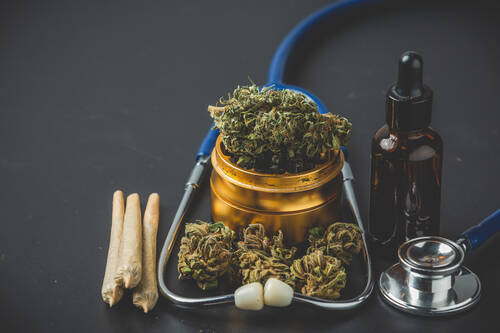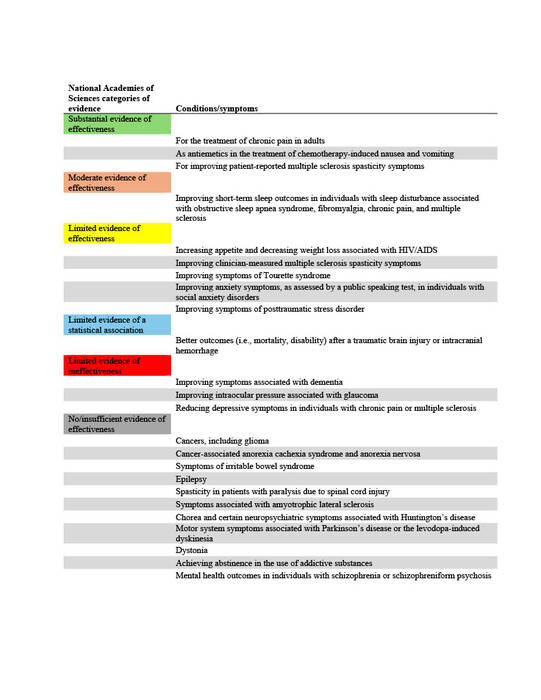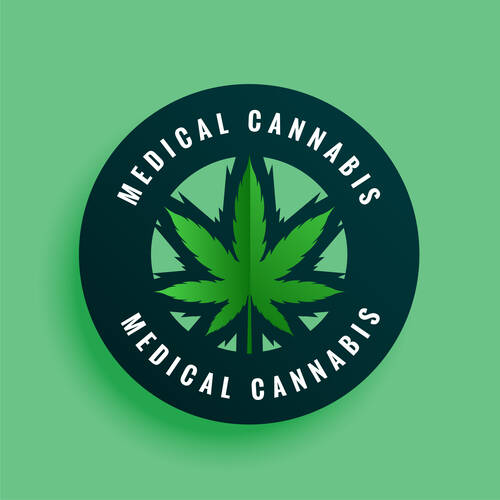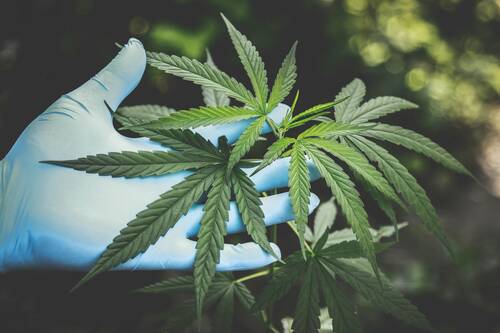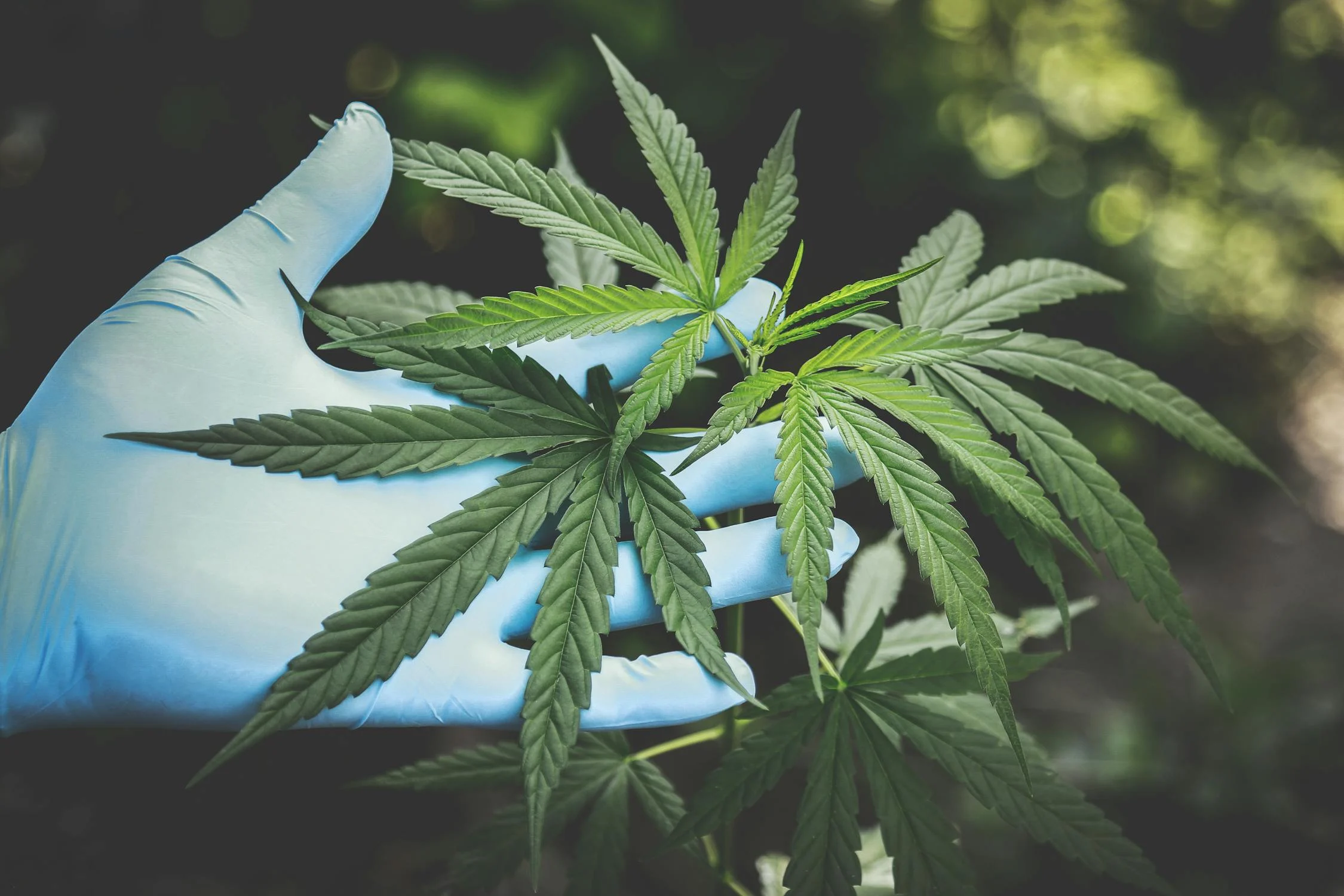Editor’ note: Cannabis and THCA/HEMP CBD products should have an active ingredient list on the container and have a Certificate of Analysis (COA). Discuss your use of CBD products with your health care provider. Dosing of CBD is variable, especially since it is not FDA regulated. CBD may interfere with other medications and should not be used in individuals with certain health conditions, including liver issues. CBD skin care products can be absorbed through the skin and have similar effects.
Do not use Cannabis products including edibles and CBD if you are pregnant, nursing or may become pregnant. Do not use cannabis products if driving or operating difficult or dangerous machinery. Children should not be exposed to cannabis or CBD products.
In recent years, medical marijuana has been widely applied across the USA. However, in some states its use is still a bit restricted, like in North Carolina. As scientists and medical specialists continue to explore the therapeutic power of marijuana, the list of cases when it is allowed to be used expands year after year.
If we speak about North Carolina in particular, patients who suffer from specific health states can legally obtain medical cannabis from licensed medical marijuana doctors only. This treatment is very effective in general.
(more…)
Author Interviews, Cannabis / 27.02.2025
Evidence-Based Medicine Up in Smoke? An Analysis of the Qualifying Conditions for Medical Marijuana
MedicalResearch.com Interview with:
Elena Stains
Medical Student
Department of Medical Education
Geisinger Commonwealth School of Medicine
Scranton, PA
MedicalResearch.com: What is the background for this study?
Response: In 2019 to 2020, 2.5% of Americans reported using cannabis for medical needs, compared to 1.2% in 2013-2014, representing a 12.9% annual increase1. Forty states and the District of Columbia have legislation for some form of medical cannabis (MC) in 2024. Because MC is not federally legalized, each state creates its own legislation on the conditions that qualify a person for MC, without any standardized process to determine what qualifying conditions (QC) are proven to be aided by MC. Thus, the QCs chosen by states vary widely. Common QCs include cancer, dementia, and PTSD.
The National Academies of Sciences, Engineering, and Medicine (NAS) published a report in 2017 on the evidence for the therapeutic effects of cannabis and cannabinoids for over twenty conditions2. This report reviews the evidence of effectiveness of medical cannabis for the most common QCs chosen by states. The researchers at Geisinger Commonwealth School of Medicine aimed to compare the evidence found by the NAS report with the QCs of 38 states (including the District of Columbia) in both 2017 and 2024. QCs were categorized based on NAS-established level of evidence: limited, moderate, or substantial/conclusive evidence of effectiveness, limited evidence of ineffectiveness, or no/insufficient evidence to support or refute effectiveness (Table 1).
(more…)
Editor’ note: Cannabis and THCA/HEMP CBD products should have an active ingredient list on the container and have a Certificate of Analysis (COA).
Discuss your use of CBD products with your health care provider. Dosing of CBD is variable, especially since it is not FDA regulated. CBD may interfere with other medications and should not be used in individuals with certain health conditions, including liver issues. CBD skin care products can be absorbed through the skin and have similar effects. Do not use Cannabis products including edibles and CBD if you are pregnant, nursing or may become pregnant. Do not use cannabis products if driving or operating difficult or dangerous machinery. Children should not be exposed to cannabis or CBD products.
Medicinal cannabis is a revolutionary approach to pain management, particularly in patients where conventional medications fail to offer them adequate relief or create intolerable side effects. With ongoing research on cannabis and its medicinal properties, its effectiveness for pain relief has become more convincing. Here are some reasons why medicinal cannabis has risen in popularity in pain management.
Natural Pain Relief Without Risks from Opioids
Many countries have been grappling with an opioid crisis, which has motivated patients to seek cannabis as a much safer alternative. Medicinal cannabis minimizes the risks of addiction associated with opioids due to misuse and gives little risk of an overdose. To obtain medicinal cannabis legally, there are options like medical marijuana cards you can obtain from providers such as Leafy Doc Mississippi. Regarding how cannabis works in terms of pain relief, cannabinoids like THC bind to receptors in the brain and the immune system, modulating the experience of pain. The endocannabinoid system engages with trauma states mainly on account of pain, mood regulation, and inflammation. However, for long-term relief, medicinal cannabis is viewed as a considerably safer alternative compared to opioids. (more…)
Author Interviews, Cannabis, Cognitive Issues, JAMA, Memory, Mental Health Research / 28.01.2025
Cannabis May Have Long-Lasting Effects on Working Memory
MedicalResearch.com Interview with:
Joshua Gowin PhD
Assistant Professor, Radiology
Anschutz Medical Campus
University of Colorado
MedicalResearch.com: What is the background for this study?
Response: Many people want to know how cannabis affects their brain and cognitive abilities. Previous studies have shown that cannabis use can impair learning and verbal memory function. Some evidence has shown that cannabis use is associated with smaller volume of areas of the prefrontal cortex. Our study investigated how cannabis use is associated with brain function.
We examined brain function across 7 tasks in 1,000 adults. 88 of them had used cannabis over 1,000 times in their lives.
(more…)
Editor’ note: Cannabis and THCA/HEMP CBD products should have an active ingredient list on the container and have a Certificate of Analysis (COA).
Discuss your use of CBD products with your health care provider. Dosing of CBD is variable, especially since it is not FDA regulated. CBD may interfere with other medications and should not be used in individuals with certain health conditions, including liver issues. CBD skin care products can be absorbed through the skin and have similar effects.
Do not use Cannabis products including edibles and CBD if you are pregnant, nursing or may become pregnant. Do not use cannabis products if driving or operating difficult or dangerous machinery.
Children should not be exposed to cannabis or CBD products.
 CBD and cannabis have been at the center of much talk about their therapeutic potential in recent years. As the benefits of these natural compounds become unveiled through more research, more individuals embrace them as a natural remedy for various health conditions. Once shrouded with different misconceptions, the medical community is exploring CBD and cannabis because of their potential effects on the body and mind. This article discusses the science behind these compounds, highlighting potential advantages while considering the role they can play in promoting health and well-being.
(more…)
CBD and cannabis have been at the center of much talk about their therapeutic potential in recent years. As the benefits of these natural compounds become unveiled through more research, more individuals embrace them as a natural remedy for various health conditions. Once shrouded with different misconceptions, the medical community is exploring CBD and cannabis because of their potential effects on the body and mind. This article discusses the science behind these compounds, highlighting potential advantages while considering the role they can play in promoting health and well-being.
(more…)
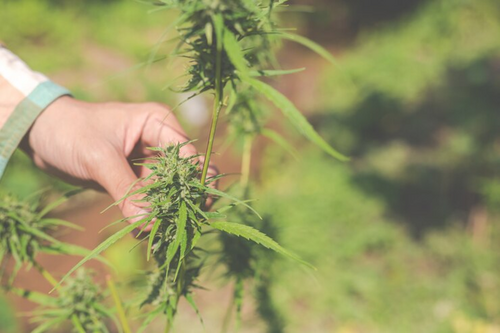 CBD and cannabis have been at the center of much talk about their therapeutic potential in recent years. As the benefits of these natural compounds become unveiled through more research, more individuals embrace them as a natural remedy for various health conditions. Once shrouded with different misconceptions, the medical community is exploring CBD and cannabis because of their potential effects on the body and mind. This article discusses the science behind these compounds, highlighting potential advantages while considering the role they can play in promoting health and well-being.
(more…)
CBD and cannabis have been at the center of much talk about their therapeutic potential in recent years. As the benefits of these natural compounds become unveiled through more research, more individuals embrace them as a natural remedy for various health conditions. Once shrouded with different misconceptions, the medical community is exploring CBD and cannabis because of their potential effects on the body and mind. This article discusses the science behind these compounds, highlighting potential advantages while considering the role they can play in promoting health and well-being.
(more…)
Author Interviews, Cannabis, JAMA / 25.01.2025
Columbia University Documents Relationship Between Medical and Recreational Cannabis Laws and Opioid Use
MedicalResearch.com Interview with:
Silvia S. Martins, MD, PhD
Associate Dean for Faculty
Professor of Epidemiology
Director, Substance Use Epidemiology Unit
Co-Director, Substance Abuse Epidemiology T32 Program
Department of Epidemiology
Columbia University Mailman School of Public Health
New York, NY
MedicalResearch.com: What is the background for this study?
Response: Much has been speculated on whether the enactment of medical and recreational cannabis laws can have a role in decreasing prescriptions for opioid pain relievers, opioid use and misuse, opioid use disorder, and overdose in the U.S. However, findings on the associations of medical cannabis laws alone and recreational cannabis las + medical cannabis laws with opioid-related outcomes are mixed.
By the end of 2019, 32 U.S. states had adopted medical marijuana laws (MCL) alone. All states that went on to adopt recreational marijuana laws (RCL) had previously adopted an MCL.
(more…)
According to Florida law, you can only use cannabis for medical purposes, such as pain relief or anxiety. If you...
Cannabis, Mental Health Research, Stress / 05.12.2024
CBD May Ease Anxiety With Fewer Risks That Can Come With THC
Discuss your use of CBD products with your health care provider. CBD has no known psychoactive effects but has potential...
Addiction, Author Interviews, Cannabis / 05.08.2024
After the legalization of recreational cannabis, there were no significant increases in rates of prescription stimulant use in the U.S
MedicalResearch.com Interview with:
Luke Cavanah, BS
Department of Medical Education
Geisinger Commonwealth School of Medicine
Scranton, PA 18509
MedicalResearch.com: What is the background for this study?
Response: Amphetamine, lisdexamfetamine, and methylphenidate, are first-line treatments for attention-deficit hyperactivity disorder (ADHD) and are classified as Schedule II stimulants due to their risk of addiction. (1–3) There has been high and increasing use and misuse of these medications with inadequate explanation. (4) Since chronic cannabis use can result in similar cognitive effects as ADHD 5–7, we wondered if more stimulants were prescribed for what appeared to be ADHD but was a consequence of chronic cannabis use. In other words, has the legalization of cannabis contributed to this inadequately explained increase in stimulant use? A recent study by our lab group that looked at the slopes of stimulant distribution rates over time -- before and after medical cannabis legalization -- did not support this.(8)
Given the prevalence and increasing legalization of recreational cannabis, we wanted to determine how slopes of stimulant distribution rates compared before and after recreational cannabis legalization.
(more…)
To maximize your CBD experience, monitor the effects closely and adjust your usage as needed. Different people can react differently...
Author Interviews, Cannabis / 18.04.2024
Blunt Truth: Inequities in Medical Marijuana Dispensary Accessibility in Pennsylvania
MedicalResearch.com Interview with:
Amy Kennalley, MBS
First Year Medical Student
Department of Medical Education
Geisinger Commonwealth School of Medicine
MedicalResearch.com: What is the background for this study
Response: The legalization of medical marijuana (MMJ) and the number of qualifying conditions are expanding across the USA, emphasizing the need to understand the implications of MMJ dispensary distribution for equitable access. Pennsylvania (PA) legalized MMJ in 2016, with the first dispensary opening its doors in 2018. The state currently recognizes 24 medical conditions for MMJ use, including six for which there is insufficient or no evidence for their efficacy as a treatment. Prior research suggests that there is a link between proximity to dispensaries and overall MMJ use. However, a gap exists in our understanding of how dispensary locations might be associated with the specific qualifying conditions for which individuals receive their certification.
In response to this knowledge gap, our study delved into the medical marijuana dispensary access in PA and explored associations with both MMJ certifications and the community demographics. Utilizing data from the Pennsylvania Department of Health, we investigated how proximity to MMJ dispensaries related to the proportion of individuals certified for MMJ use within a specific area or Zip Code Tabulation Area. Additionally, we analyzed the proportion of certifications for conditions with varying levels of evidence supporting the efficacy of MMJ.
This pioneering study represents the first of its kind in PA, shedding light on the association between MMJ dispensary locations and certifications. Likewise, it is the first in the US to investigate the link between dispensary locations and specific qualifying conditions. By examining these dynamics, we aim to contribute vital insights to inform policy and practice, ensuring equitable access to MMJ treatment for individuals with diverse medical needs.
(more…)
Addiction, Author Interviews, Cancer Research, Cannabis / 23.03.2024
Prior studies claiming to find a lethal cannabis-immunotherapy drug interaction riddled with errors
MedicalResearch.com Interview with:
Brian J. Piper, PhD
Associate Professor of Neuroscience
Geisinger Commonwealth School of Medicine
Scranton PA 18411
MedicalResearch.com: What is the background for this study?
Response: Many cancer patients use marijuana to treat pain, nausea, or anxiety, often without communicating this with their health care providers. Two observational studies (1, 2) from a single institution in Israel purporting to find a dangerous drug interaction between medical cannabis and immunotherapy have been cited hundreds of times, including by clinical practice guidelines.
The cannabinoid CB2 receptor is found on immune tissues so it is biologically possible that marijuana could make immunotherapies like nivolumab less effective. However, there were anonymous reports on PubPeer (3-5) of many irregularities in the data-analysis. If there were unappreciated differences on other important variables at baseline besides subsequent cannabis use, this could change the interpretation of these influential reports (1, 2). This investigation involved attempting to repeat and verify the data-analysis.
(more…)
Author Interviews, Cannabis / 07.07.2023
Pronounced state-level variation in Medicaid prescription of cannabinoids
MedicalResearch.com Interview with:
Edward Liu, BA
Second year medical student
Department of Medical Education
Geisinger Commonwealth School of Medicine
Scranton, PA
MedicalResearch.com: What is the background for this study?
Response: The use pattern of two FDA approved cannabinoids, dronabinol (Marinol) and cannabidiol (Epidiolex) has not been previously studied. Dronabinol has been approved in the United States since 1985 for chemotherapy induced nausea as well as vomiting and HIV-induced anorexia,1,2 whereas cannabidiol has been approved since 2018 to treat childhood epileptic disorders, Lennox-Gastaut and Dravet syndrome.3 This longitudinal study examined Medicaid claims between 2016-2020 for these two prescription cannabinoids to better comprehend the state-level pharmacoepidemiologic trends and distribution of these drugs in US Medicaid amidst the increasing use of non-pharmaceutical formulations of cannabis.
(more…)
Author Interviews, Cannabis, JAMA / 07.09.2021
Study Finds Little Evidence Recreational Marijuana Laws Encourage Youth Marijuana
MedicalResearch.com Interview with:
Mark Anderson, Ph.D.
Associate Professor
Department of Agricultural Economics and Economics
Montana State University, IZA, and NBER
MedicalResearch.com: What is the background for this study?
Response: In a previous study that was published in JAMA Pediatrics, we used Youth Risk Behavior Survey (YRBS) data and found that the adoption of recreational marijuana laws (RMLs) was associated with an 8% decrease in the odds of marijuana use among high school students. This earlier study, however, had pre-legalization and post-legalization data from only 7 states and pre- and post-recreational sales data from only 3 states, calling into question the generalizability of our findings.
(more…)
Author Interviews, Cannabis, Dermatology, JAMA, Johns Hopkins / 09.04.2021
Medical Marijuana as Therapeutic Option for Intractable Itch
Future randomized controlled studies are needed to determine dosing, efficacy, and safety of medical marijuana for the treatment of various...

